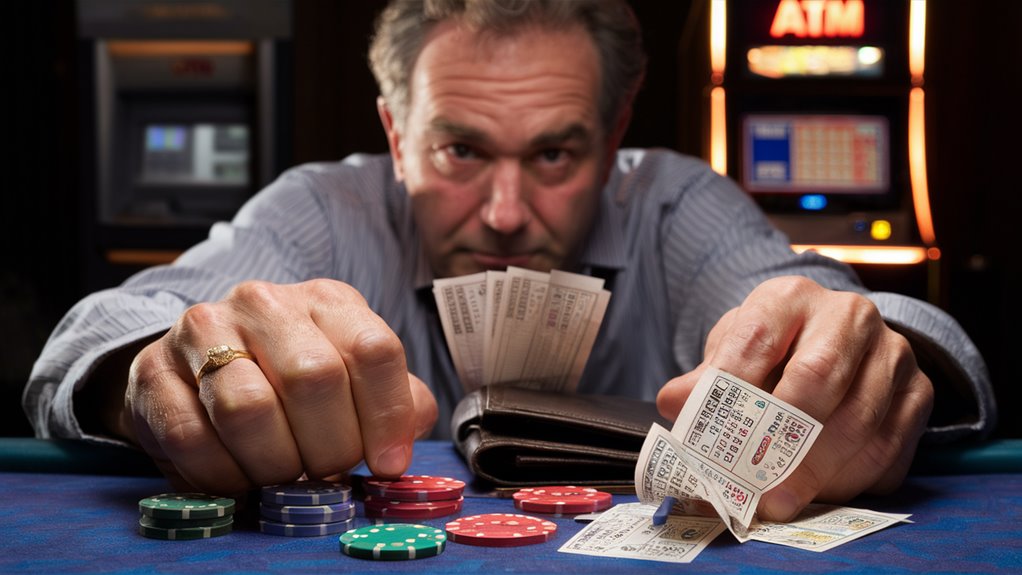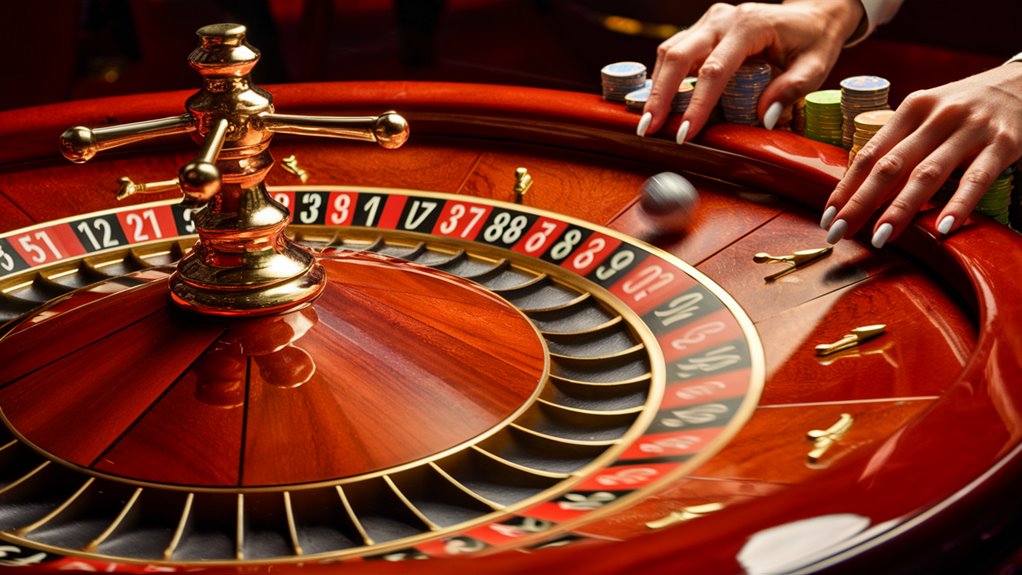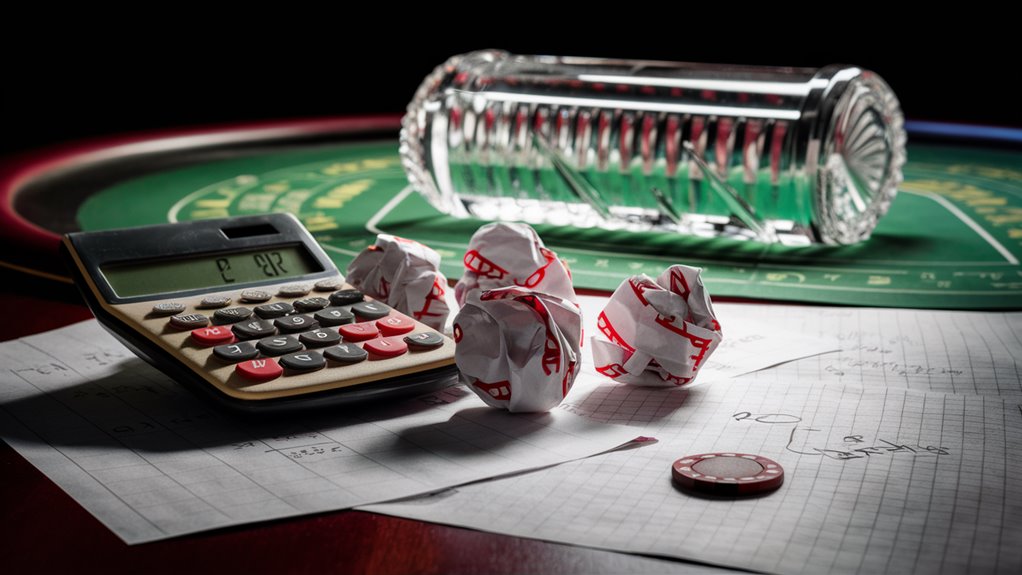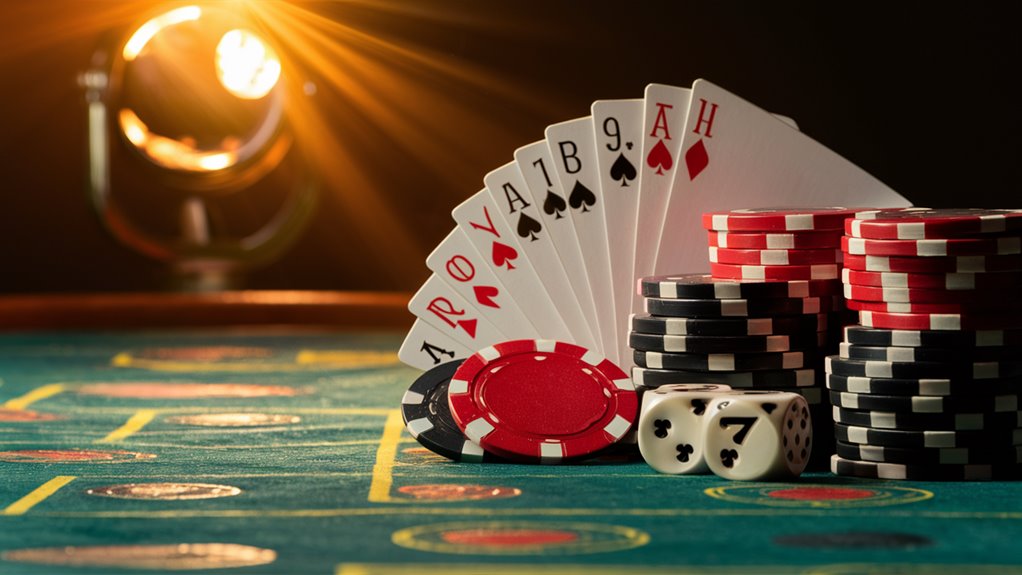Gambling: Fun or Illness – Knowing the Range
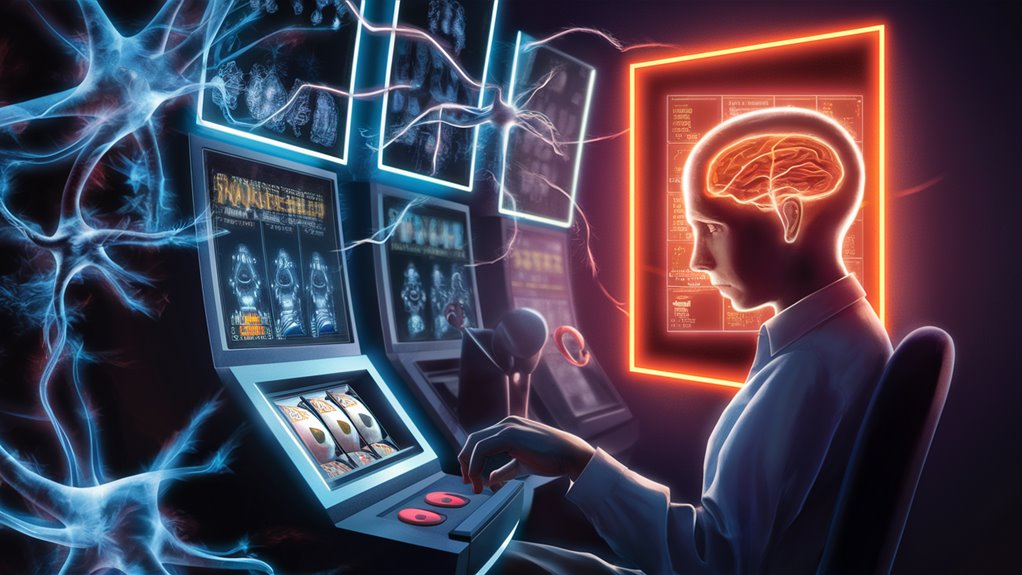
The Two Sides of Gambling
Gambling can be a fun hobby or a serious health issue. Most people play games with set money limits and clear rules, and for them, it’s just fun. But studies show about 1% of adults get a serious gambling problem and need help. The Psychology Behind Casino Design and Layout
Why People Get Hooked on Gambling
Turning from a casual player to a hooked one changes the brain. The brain’s reward system works up in ways much like drug issues do, binding folks to the game. These brain changes turn a fun activity into a damaging problem.
Signs and Risks of Gambling Too Much
What to Watch For:
- Can’t stop or cut down gambling
- Betting more money even when losing
- Money problems from gambling
- Hurting relationships because of gambling
- Doing worse at work or school
- Always thinking about gambling
When It’s a Medical Issue
Doctors spot gambling issues by how it hurts a person’s life. Knowing these signs helps catch problems early.
How to Keep Gambling Safe
To keep gambling fun, you should:
- Have a fixed budget
- Set time limits
- Know the signs of trouble
- Gamble wisely
- Get help if it’s needed
This plan helps tell apart safe playing from risky behavior that needs attention.
The Thinking Behind Gambling
The Brain Science of Gambling
Many brain and life factors push gambling from activity to habit. Brain signals are key in developing how and why people gamble.
Dopamine release during plays makes people feel great, especially when they win. This rush sets up habits that continue despite losing.
The brain starts to link gambling with happy feelings and wants more.
How We Decide to Gamble
Mind Tricks
Mental mistakes trick players into thinking the next win is just around the corner or they can control the chance.
Place Impacts
Casino settings are made to keep people playing through:
- Eye-catching sights How to Recognize and Overcome Gambling Addiction
- Sounds
- Random rewards
Why It Becomes an Addiction
The shift from fun gambling to a hard habit includes:
- Born tendencies
- Stress reactions
- Places and things that trigger gambling
- How gambling is made appealing
These turn gambling into a hard habit to break.
Good vs. Bad Gambling
Good Play vs. Bad Play: A Full Look
The Line Between
Not all gambling is bad. Good players control their habits, have money limits, and do it for fun. They:
- Keep to a budget
- Play within a time limit
- Balance life and play
- Can stop when they choose
When Gambling Is a Problem
Problem gambling shows itself through:
- Growing bet sizes
- Can’t stop playing
- Always thinking about gambling
- Playing even with big losses
- Needing to bet more to feel a rush 온카스터디 안전업체 보기
- Hurting when trying to quit
Life Effects
A serious gambling problem can mess up many parts of life. Signs include:
- Money troubles
- Worse family life
- Issues at work
- Chasing losses
- Poor ways of coping
- Always thinking about gambling
This deep look helps spot and handle gambling problems right.
The Brain During Bets
The Brain and Betting
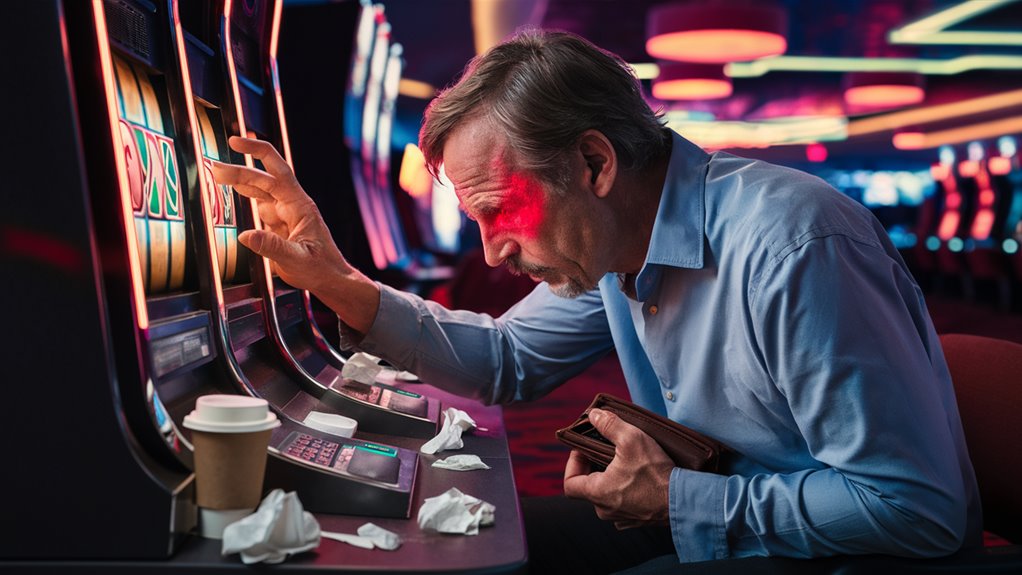
Dopamine and Rewards
As bets are made, the brain sees big changes like those in drug use.
Dopamine surges, tying pleasure to playing, more during some wins or close losses.
Brain’s Gambling Gear
Key parts of the brain light up or quiet down during betting.
That brain setup increases looking for wins or risks and dulls thinking on dangers.
This draws folks deeper into gambling.
The Main Brain Spots:
- Dopamine rises when thinking of betting
- Key brain part reacts during the game
- Changes in how choices are made
- Building a need for more play through brain changes
- Weaker self-control in risk choices
Home and People Effects
Home and Friend World of Bad Gambling
Family Trouble
Bad gambling harms homes and friends more than just the players.
Studies show high divorce numbers among heavy gamblers compared to others.
Impact on Kids and Home Life
Kids of big-time gamblers face hard life risks like:
- Acting out
- Sadness
- Fear
- Feeling unloved
Money stress makes partners work more, kids see less of them, hurting family closeness.
Money meant for home use goes into gambling, affecting children’s growing up.
Social and Mind Tough Times
Hurting Relationships
Hardcore betting often brings:
- Pulling away from friends
- Less trust through sneaky acts
- Less talk within the family
- Using loved ones
Health Downsides
Family often ends up with stress-linked health issues like:
- Not sleeping well
- High blood pressure
- Stomach troubles
- Worry signs
Money and Family Trouble
Big gambling links with:
- More home fights
- More reports of hurting kids
- Bankruptcy
- Money imbalance
These patterns drag down families over time, making gambling a major health worry for all.
Help Paths and Healing
Help for Serious Gambling
All-Around Help Methods
Help like CBT is top for gambling issues, with talks to motivate and group support to tackle behavior roots.
Many Help Ways
Getting better often needs many help types like drugs for mood, money advice, and family help for home and relationship fixes.
Lasting Help Needs
Groups like Gamblers Anonymous help a lot, keeping folks on track.
Lasting plans focus on:
- Spotting triggers
- Building coping skills
- Keeping track of money
- Checking on family health
Watching After Help
Care should go on for 12-24 months, checking on:
- Urge to gamble
- How money is handled
- Family ties
- Staying with support groups
This robust plan builds a solid base for overcoming gambling’s hurts.
